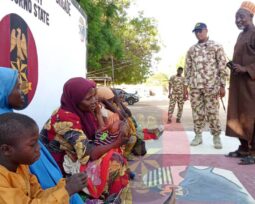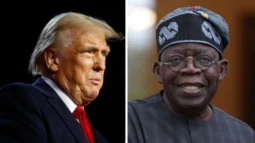As Nigeria’s political landscape braces for the 2027 general elections, the African Democratic Congress (ADC) stands at the forefront of a burgeoning opposition coalition poised to challenge President Bola Tinubu’s All Progressives Congress (APC). Formed in 2005 and revitalized in July 2025 by a powerhouse alliance of defectors from major parties, the ADC has transformed from a marginal player into a credible anti-incumbency force.
At the heart of this transformation is former Vice President Atiku Abubakar, whose strategic maneuvering, unmatched experience, and coalition-building prowess position him as the frontrunner—and likely winner—of the party’s 2026 presidential primary. While rivals like Peter Obi and Rotimi Amaechi bring their own strengths, Atiku’s blend of northern dominance, financial muscle, and historical gravitas makes his emergence all but assured.
The ADC Coalition: A Vehicle Tailored for Atiku’s Ambition
The ADC’s resurgence is no accident; it’s the culmination of Atiku’s calculated pivot from the fractured Peoples Democratic Party (PDP). In July 2025, Atiku, alongside Peter Obi (ex-Labour Party), former Senate President David Mark, Nasir El-Rufai, and Rotimi Amaechi, officially adopted the ADC as their platform to “save Nigeria from one-party rule.”
This coalition, often dubbed the “anti-Tinubu alliance,” drew heavyweights disillusioned with their former parties’ internal strife and the APC’s dominance. Analysts like Shehu Iliyasu have noted that Atiku and Obi’s near-miss in 2023—where they collectively polled over 13 million votes—has fueled this unity, with Atiku eyed as the presidential standard-bearer and Obi as a potential running mate.
The party’s structure, now under the interim leadership of David Mark (chairman) and Rauf Aregbesola (secretary), reflects Atiku’s influence. With Atiku’s faction effectively “taking over” the ADC—despite initial pushback from ousted chairman Ralph Nwosu—the primary in 2026 will be less a contest and more a coronation. Social media buzz on X underscores this sentiment, with users declaring, “It is ATIKU/OBI’S ticket,” highlighting the coalition’s implicit zoning to the North for electoral viability against a southern incumbent like Tinubu.
Atiku’s Unrivaled Experience: A Resume Built for Victory
Atiku Abubakar, 78, enters the 2026 primary as Nigeria’s most seasoned presidential aspirant, with six prior bids (1993, 2007, 2011, 2015, 2019, 2023) under his belt.
His tenure as Vice President (1999–2007) under Olusegun Obasanjo is a cornerstone of his appeal, where he spearheaded economic reforms in telecommunications, pensions, and banking that spurred GDP growth and job creation. These achievements resonate with ADC delegates seeking a proven leader to counter Tinubu’s economic policies, which have fueled 34% inflation and widespread hardship.
Unlike flashier rivals, Atiku’s track record extends to business acumen—co-founding Intels Nigeria and the American University of Nigeria—positioning him as a pragmatic unifier.
In a primary emphasizing “intense and intentional leadership,” as per ADC’s ethos, Atiku’s manifesto—set to be presented to delegates—will highlight restorative policies, drawing on his 2019 playbook where Obi was his running mate.
Financial Firepower and Machine Politics: Atiku’s Secret Weapon
Nigerian primaries are won in boardrooms and bank halls, and Atiku’s wealth—estimated in billions from oil servicing and real estate—gives him an insurmountable edge. As the coalition’s deepest-pocketed figure, Atiku has reportedly placed ADC state chapters “under his payroll,” funding grassroots mobilization and delegate incentives.
This mirrors his PDP dominance, where financial leverage secured nominations despite fierce competition.
Rivals pale in comparison: Obi’s crowdfunding success is inspirational but insufficient for a nationwide delegate buy-in, while Amaechi’s ambitions are seen as a “camouflage” for a vice-presidential slot under Atiku. With the ADC’s indirect primary system—relying on accredited delegates—Atiku’s machine, bolstered by northern PDP defectors like Sule Lamido and Uche Secondus, will sway votes decisively.
Navigating Rivalries: Why Obi and Amaechi Will Yield
Peter Obi, 63, commands the “Obidient” movement that nearly upended the 2023 elections, but his southern Igbo roots clash with unwritten zoning norms favoring a northern candidate against Tinubu. Analysts predict Obi as Atiku’s running mate, a repeat of 2019, to consolidate southern and youth votes. Amaechi, a two-term Rivers governor, polled second in the 2022 APC primary but lacks Atiku’s broad alliances. His southern push risks fracturing the coalition, which Atiku has vowed to prioritize over personal ambition: “My ambition will never be greater than the unity and progress of our party.” In a field of three frontrunners, Atiku’s endorsements from Mark, El-Rufai, and Tambuwal tip the scales.
The Path to Primary Triumph: Unity Over Division
Potential hurdles like zoning disputes or funding shortfalls exist, but Atiku’s pledge to support any winner—including stepping aside for youth—masks his frontrunner status while endearing him to delegates. The ADC’s focus on mass mobilization and anti-corruption aligns with Atiku’s narrative as a reformer, not a perennial loser.
Atiku’s Seventh Bid, First in ADC Glory
Atiku Abubakar’s journey to the 2026 ADC presidential primary is a masterclass in political resilience. With the party’s infrastructure in his pocket, a resume that outshines competitors, and a coalition forged in his image, victory is not just probable—it’s predestined. As Nigeria grapples with economic woes and democratic fatigue, Atiku’s emergence as the ADC flagbearer could signal the opposition’s renaissance. For the Waziri of Adamawa, 2026 isn’t just another primary; it’s the gateway to Aso Rock in 2027, proving that experience, when wielded wisely, triumphs over novelty every time.







